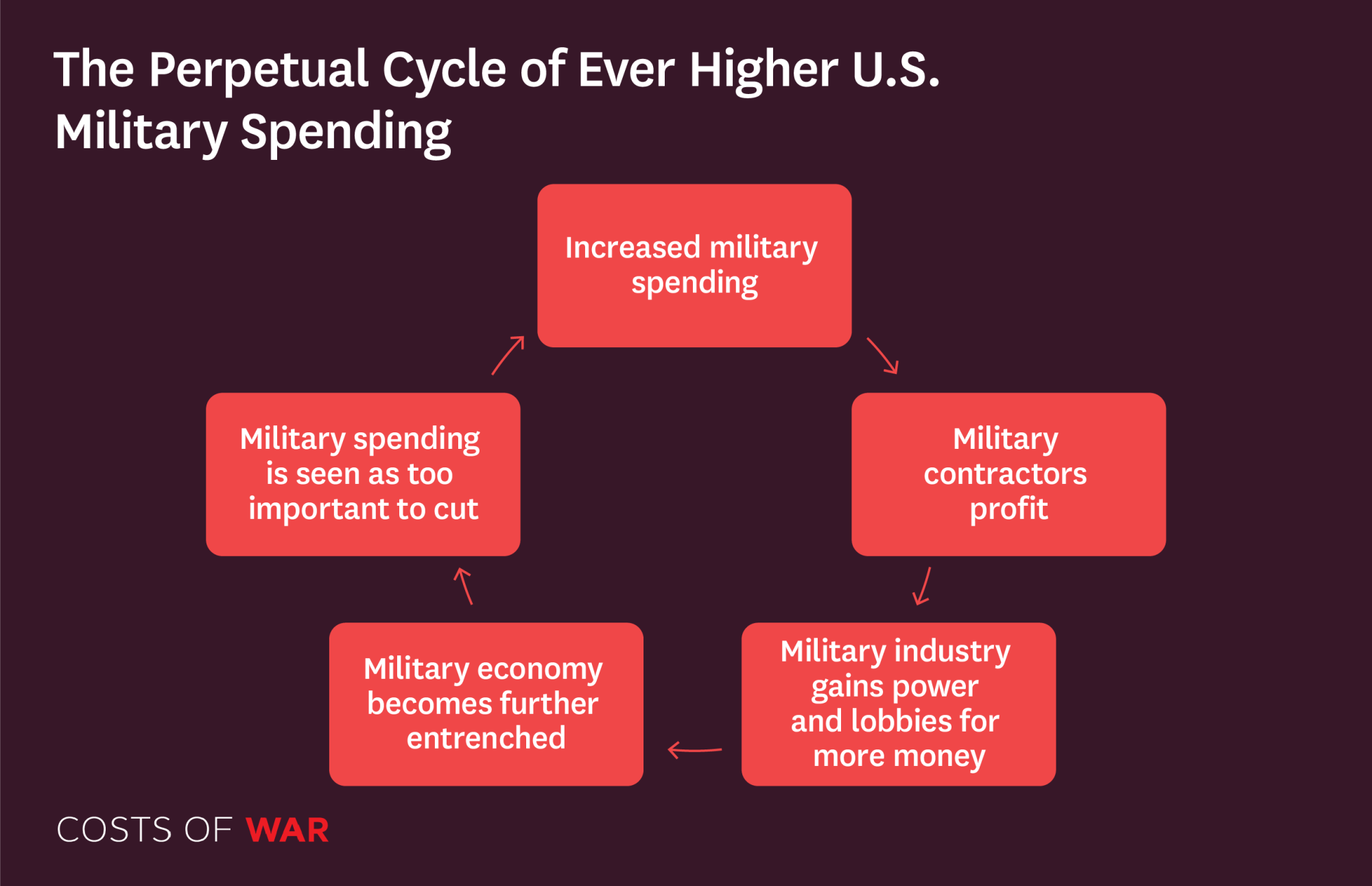Paper
Economist and Costs of War Director of Programs Heidi Peltier (Senior Research Associate, Brown University) documents that military spending makes up a dominant share of discretionary spending in the United States; military personnel make up the majority of U.S. government manpower; and military industry is a leading force in the U.S. economy. Dr. Peltier finds that as a result, other elements and capacities of the U.S. government and civilian economy have been weakened, and military industries have gained political power.
Decades of high levels of military spending have changed U.S. government and society — strengthening its ability to fight wars, while weakening its capacities to perform other core functions. Investments in infrastructure, healthcare, education, and emergency preparedness, for instance, have all suffered as military spending and industry have crowded them out. Increased resources channeled to the military further increase the political power of military industries, ensuring that the cycle of economic dependence continues — militarized sectors of the economy see perpetual increases in funding and manpower while other human needs go unmet.
This report details the primary economic distortions that have come at such a high cost to the more balanced functioning of the U.S. federal government through examining the federal discretionary budget, DoD spending, and the federal workforce. Ultimately, this paper illustrates that reducing the military budget and funding other priorities such as healthcare, education, clean energy, and infrastructure will help increase other forms of security – the kind of meaningful human security rooted in good health, good living conditions, and a productive and well-educated society – while also increasing employment nationwide.

